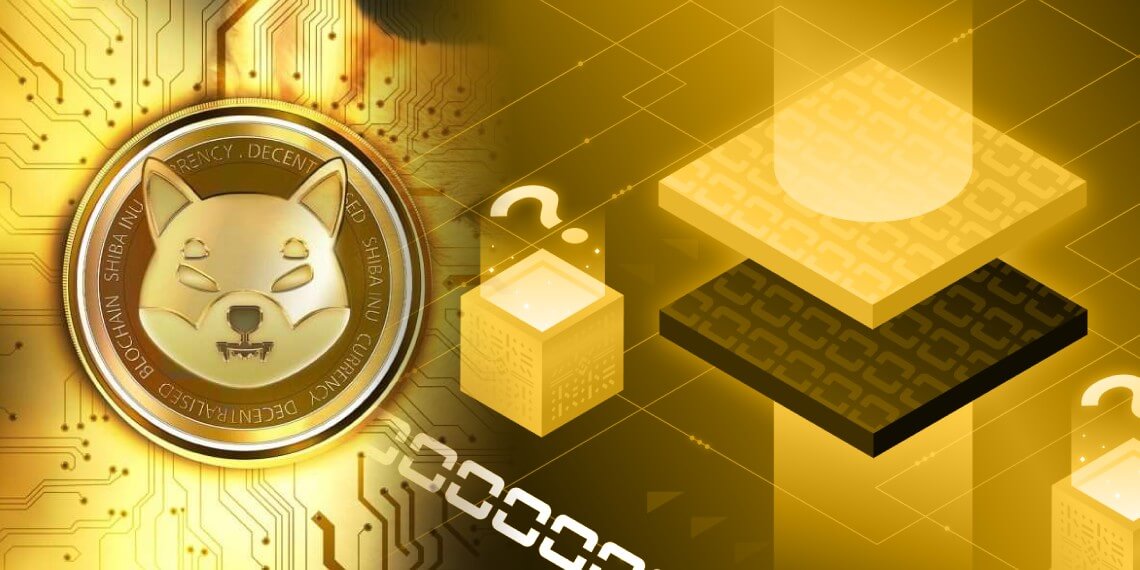Shibarium is a tool that expands on Ryoshi’s vision (Shiba Inu founder) to provide the Shibarmy (community) with the means to build the Shiba Inu ecosystem on their terms. The goal of the Shib project has always been to onboard and educate users on developing the project from the ground up.
According to the latest update, the Beta version of Shibarium is almost launching to the public.
Before the update, the community knew little about Shibarium. In this article, we shall expound on what Shibarium is, its relation with the Shiba Inu ecosystem, and its importance.
What is Shibarium Layer 2 (L2)
Shibarium is an L2 solution built on the Ethereum blockchain for the Shiba Inu ecosystem. L2 is a decentralized protocol that runs on top of another blockchain (Layer 1) and runs transactions ‘off-chain,’ which it sends to Layer 1 for verification.
L2 generally focuses on improving the blockchain and alleviating bandwidth by minimizing tasks managed by base layer 1.
The Shibarium upgrade scales and invites solutions, innovations, and security to Decentralized Finance (Defi). With L2, the community can anticipate scalability, faster transactions, low fees, and an expanded framework. Shibarium will serve different industries, such as Web3 innovation, gaming, and metaverse, mainly due to the commonality of performance and scalability solutions of existing blockchain networks.
Once the Beta is approved, the devs will integrate the Shibarium mainnet into Shibaswap for easier access to functions and tools. Users will have an easy time accessing the staking and liquidity pools.
L2 utility and tokenomics
According to the update, Shibarium will allow for the creation of non-fungible tokens (NFTs), just like in Ethereum. In-game assets, event tickets, digital land, art, and music will be some of the use cases.
BONE, the Shib governance token, is the native token to pay for gas fees and reward delegators and validators within the Shibarium protocol. The exact fees are not yet provided but will be lower than those of the Ethereum blockchain, and the devs will give a better estimate once the BETA is live and running as expected.
Validators will play the role of verifying Shibarium by staking a predetermined 10,000 BONE tokens. The protocol limits the number of validators to 100 chosen based on experience, knowledge, and commitment. New validator positions will only be available when an active validator loses or leaves their slot.
The protocol will also accommodate other users through delegations. Delegations allow the rest of the community to preserve the network by staking their BONE tokens under validators.
Shib devs expect validators to install the Heimdall open-source validator software and Bor block producer nodes, an EVM-compatible layer used for block production.
Both validators and delegators will be rewarded with BONE and TREAT tokens based on their stake in the staking pool. The rewards will come from gas fees charged on the protocol’s transactions.
The team will also use TREAT to incentivize liquidity pools once they integrate Shibarium into Shibaswap.
Bad actors will have their stakes slashed, reducing their staked assets on the protocol. Slashing is irreversible and acts to ensure trust within the ecosystem.
The devs will also incorporate a Shiba Inu burn mechanism into Shibarium to impact Shiba Inu’s total supply over time significantly.
The Devs are yet to disclose Shibaium’s speed citing their priority in ensuring efficient protocol performance in the early weeks of the testnet. The speed will however be comparable to that of other L2s on Ethereum.
Testnets are test environments that enable developers to test their decentralized applications with fake cryptocurrencies obtained from faucets. The faucets will be available on the Shibarium Testnet, which they expect to release to the public soon.
At press time, Shiba Inu was selling at $0.00001036, up 2.3% in 24 hours and 40% year to date.





